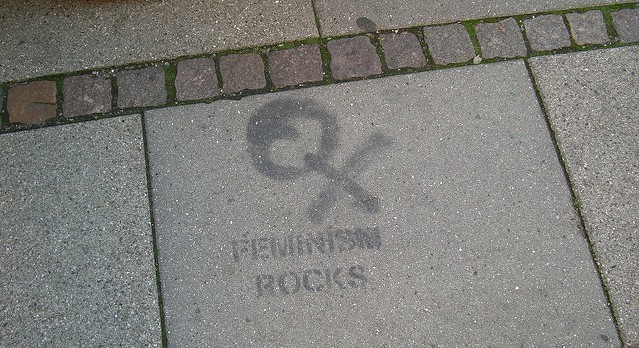Group Assembly Process
Experimenting with new forms of collective thinking and consensus formation.
Be part
There will be hundreds of people from different countries, contexts, backgrounds – all coming together in the first week of September 2014 in Leipzig to think and discuss about a truly sustainable and just world and to experiment with new forms of collective thinking and consensus formation. Be part of an exciting experiment in collective organizing – be part of the Group Assembly Process (GAP) at the 4th International Degrowth Conference in Leipzig!
The GAP is a three-day working process among activists, practitioners, scientists and artists of the degrowth movement. It aims at developing concrete proposals for the transition towards and the shape of degrowth societies and at mapping existing areas of disagreement and open questions for debate and research - in a process of collective and democratic consensus building.
The GAP can be accessed online on the
co-munity platform.
Share your experience
The basic idea of the Group Assembly Process is that people with some experience – be it practical or theoretical – in the field of degrowth gather in thematic working groups to map proposals for the transition towards and the shape of a degrowth society. They don’t only meet for a single workshop but have 6 hours for finding commonalities and differences – 2 hours each day of the conference, between 17 and 19h. To make sure that in-depth discussions are possible, each working group consists of not more than 20 participants and is facilitated by a person knowledgeable in the field. The group discussion is already started in online discussion groups beforehand, inspired by one to three provocative “stirring papers”.
The goal of the working groups is to find important proposals for a politics towards degrowth and to map what is consensual or controversial about them. In addition we encourage the emerging of new research questions and proposals for direct action through engaged discussions in the groups.
The GAP working groups in Leipzig:
Agriculture and Food
Basic income
Childhood
Climate and Energy
Commons and Peer Economy
Consumption
Democracy
Learning for degrowth
Money and Finance
Organizing collective action for degrowth
Redefining Value
Reproduction and Work
Resources and Extraction
Social Security
Solidarity Economy, Cooperatives and Social Business
Sufficiency Policies
Technology and Production
Transport and Mobility
Urban Transformation
Find collective consensus
With the GAP we continue a process which was started at the Barcelona Conference in 2010, and we developed the concept further in the direction of consensus building with large groups and the bottom-up generation of proposals.
Each of the three day working phases is opened by half an hour of a general assembly, where each working group presents the intermediary results of its discussion and everyone in the assembly can comment on, broaden, or criticize the work of the specialized working groups. In addition all participants of the conference can comment on the proposals of the groups online and directly at the conference on a feedback desk at the infopoint. Then the working groups discuss and integrate these comments – and present them to the assembly again the next day.
Show your hands
As a final big experiment we will present the emerging consensus, controversies, research questions and actions, which the working groups have developed in their three-day discussion, to the entire conference on the closing day Saturday 6th September – and all can show immediate consent or dissent with the results using hand signs. The GAP will thus be an experiment in collective consensus building, using methods of consensus finding known for some times within grassroots initiatives and social movements at a big scientific and political conference like the Degrowth 2014. Another small step on the long road toward a real democratic degrowth society.
FAQ
[faq title="+ When will the GAP take place?" opened="no"]TThe 3rd slot of each full day of the 4th International Degrowth Conference in Leipzig (5-7pm) is devoted to participatory methods. As part of this process, the GAP will take place at the same time as other interactive but more open formats such as Open Space (open discussions on freely suggested topics) and World Cafés (structured discussions around a theme but less output-oriented).[/faq]
[faq title="+ How will the working groups proceed?" opened="no"]The discussion in each working group is prepared and facilitated by a GAP-facilitator. In addition, it is based on one to three introductory stirring paper(s). Participants have to sign up to the GAP working groups before the conference and will be invited to read and comment the stirring papers in advance of the conference. Participants should try to participate in the same working group during the three consecutive days.[/faq]
[faq title="+ What is a stirring paper?" opened="no"]A stirring paper is a short and comprehensible text that will serve as inspiration for a working group in the GAP-process. Scientists, practitioners, artists and activists alike have been invited to submit stirring papers. Stirring papers are aimed at introducing new proposals or debates for a certain aspect of degrowth and at stirring discussions that are also relevant to non-scientists. They may build on the collective consensus formation processes at the former
international degrowth conferences, but may also raise new issues and proposals.[/faq]
[faq title="+ How were the topics of the working groups selected?" opened="no"]The submitted stirring papers were peer reviewed, selected and grouped into working groups by the conference organizers in collaboration with
Research & Degrowth. They now undergo an open peer review process and can be read and discussed on the Degrowth online platform. Comments, discussions, as well as further papers and references can be posted or linked by all registered participants of the conference.[/faq]
[faq title="+ Is there a possibility to critically discuss the outcome of the working groups?" opened="no"]
Yes, there will be several feedback mechanisms during the pre-run of the conference and in between the meetings of the working groups at the conference. At the moment we are developing a form that will allow us to bring comments from all conference participants into the process.[/faq]
[faq title="+ How will the ideas of the GAP be presented during the conference?" opened="no"]The common output of all working groups should be a mapping of their proposals – focussing on the enhancement of degrowth proposals and practices beyond the conference and building on the proposals already developed at the three former international degrowth conferences. Results will be presented to all participants of the conference on the final day, as part of the closing ceremony.[/faq]

